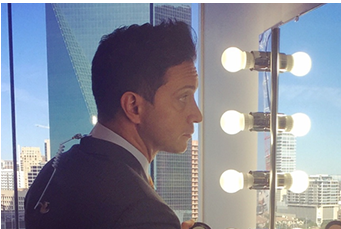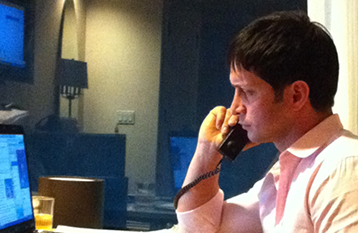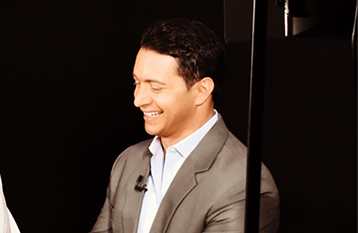 From a young age I can remember my father saying, “Those who forget the past are doomed to repeat it.” My father was talking about the wars and mistakes that people and governments make. Those mistakes have thrown many economies and whole countries into turmoil and in the worst of cases caused the deaths of many.
From a young age I can remember my father saying, “Those who forget the past are doomed to repeat it.” My father was talking about the wars and mistakes that people and governments make. Those mistakes have thrown many economies and whole countries into turmoil and in the worst of cases caused the deaths of many.
As I get older, I notice that many of us have heard this saying. We try hard to live that way.
A person who doesn’t drink coffee may not know to check how hot it is before he takes a big gulp. He burns his mouth, but that shocking (and painful) experience would make him more cautious and take a smaller sip next time. This memory would most likely last the rest of his life.
You can find examples of this all around you!
Another might be taking a curve at high speed in your car and having to brake violently to avoid an accident. I bet your next trip around that curve would be much slower and more calculated.
Financial markets, on the other hand, are different.
They would have no problem trying to take that turn at a high speed again and again, even if they had crashed before. Recognizing when the market is acting “irresponsible” can make you (or save you) a lot of money.
There are several reasons for this.
Financial Market Amnesia
The stock market has a sort of amnesia. It tends to forget about major catastrophes and serious geopolitical effects that can have a prolonged impact. It also tends to disregard — or at least discount — the impact these past scenarios have when they repeat themselves.
The “Flash Crash” caused complete pandemonium for a day about a year ago. We still don’t have a clear answer to why it happened. Many experts (including me) believe that the flash crash could happen again. There are major flaws in some of the financial trading products (like certain ETFs) but the market doesn’t see them.
Right now, there are a plethora of major market uncertainties around the globe and talk of housing other economic bubbles in China as well as bubbles in commodities that could send stocks sharply lower.
Just recently are we beginning to see some cracks in the market’s foundation, but the market still remains oblivious…
So why doesn’t the stock market “care” about what is really happening around us?
This is mostly because the market is not an individual with one memory or one opinion; it is a collection of millions of human minds and computers that are constantly changing. In this massive gathering of millions of people that are all connected, they begin to act very different than any individual could.
(Sign up for Smart Investing Daily and let me and fellow editor Sara Nunnally simplify the market for you with our easy-to-understand articles.)
The Crowd
I have spent a great deal of time analyzing crowds of people. I found one of the best descriptions of this phenomenon written in Gustave Le Bon’s book appropriately titled book The Crowd.
To paraphrase:
No matter what the character, occupation or intelligence of an individual, once they become part of a crowd, they will begin to possess a “collective mind” which makes that person feel, think and act in a manner that is completely different from which they would in isolation.
All of us have our own views and opinions, but when we read the paper, watch the news or surf the net, other ideas are being planted in our heads. This is not always a bad thing, but when everyone begins to think the same thing, bubbles can form… Implosions are usually soon to follow.
Remember in 2007, when everything was about real estate? It was everywhere you turned. Positive talk about cheap rates and booming values lured even the savviest investors down the primrose path. Eventually, it all led to disaster.
If you find that people are OVERLY optimistic (or pessimistic), it may not be a bad idea to think about doing the opposite. The difficulty here is timing.
Bubbles and Implosions
Bubbles will always be a part of capitalism. It is your job to recognize them and protect yourself if you think one is about to burst. Part of the reason bubbles form is that greed takes over. The crowd doesn’t want to “miss out” on the deal of the century. Trust me; there will be many opportunities to make money — don’t be afraid to sit out a couple.
There are a couple ways to spot a bubble in progress.
- Unusual price movements — If you are looking at a stock or index and notice that it is making peculiar movements recently, wait before entering that buy order. The simplest way to spot this is to use a chart.
If the stock is getting progressively further away from its 50-day moving average and has been moving higher for an extended period of time without a pullback, this might be a caution flag.
This happened with Google (GOOG:NASDAQ) back in the second half of 2010, and again in the most recent quarter of 2011.
Make sure do your homework on a stock and find out what has been driving it higher. If you can’t find a realistic explanation, stay away!
- Overpopular — If a stock or commodity is being touted on TV, news and in your circle of friends and family as a “hot stock,” be wary. Bubbles occur when the crowd becomes obsessed and feels it has to jump on a train that’s leaving the station.
What ends up happening to most of us is we jump on when the train is actually coming into the station and stopping.
Use your common sense and try not to get excited about any stock or investment. You should have an objective system and checklist that you use to review each and every trade. If an investment doesn’t meet all of your criteria, walk away. Sip your coffee, don’t gulp it. Never go all in!
There will always be opportunities; the trick is to not get caught in the hype of any one of them. The market does not remember the many times it has been burnt, but we the individual participants sure do.
If you want more guidance on when and where the bubbles are forming and how to avoid them, I offer weekly guidance and trade ideas in my trading research service WaveStrength Options Weekly.
Editor’s Note: After bubbles pop, there’s a period where stocks shoot higher. This is the start of a “New Economy.” It’s not a time to be on the sidelines. Safe Haven Investor editor Kent Lucas has created a “New Equity Recovery Program” designed to help you win back some of those gains the housing bubble and market crash took from you. Read his letter if you’re interested in safe, high-percentage returns.
Article brought to you by Taipan Publishing Group. Additional valuable content can be syndicated via our News RSS feed. Republish without charge. Required: Author attribution, links back to original content or www.taipanpublishinggroup.com.
Other Related Topics: Investment Strategies , Jared Levy , Market Bubbles , Safe Investments , Stock Market Analysis , WaveStrength Options Weekly
Also By This Author
Other Related Sources:









